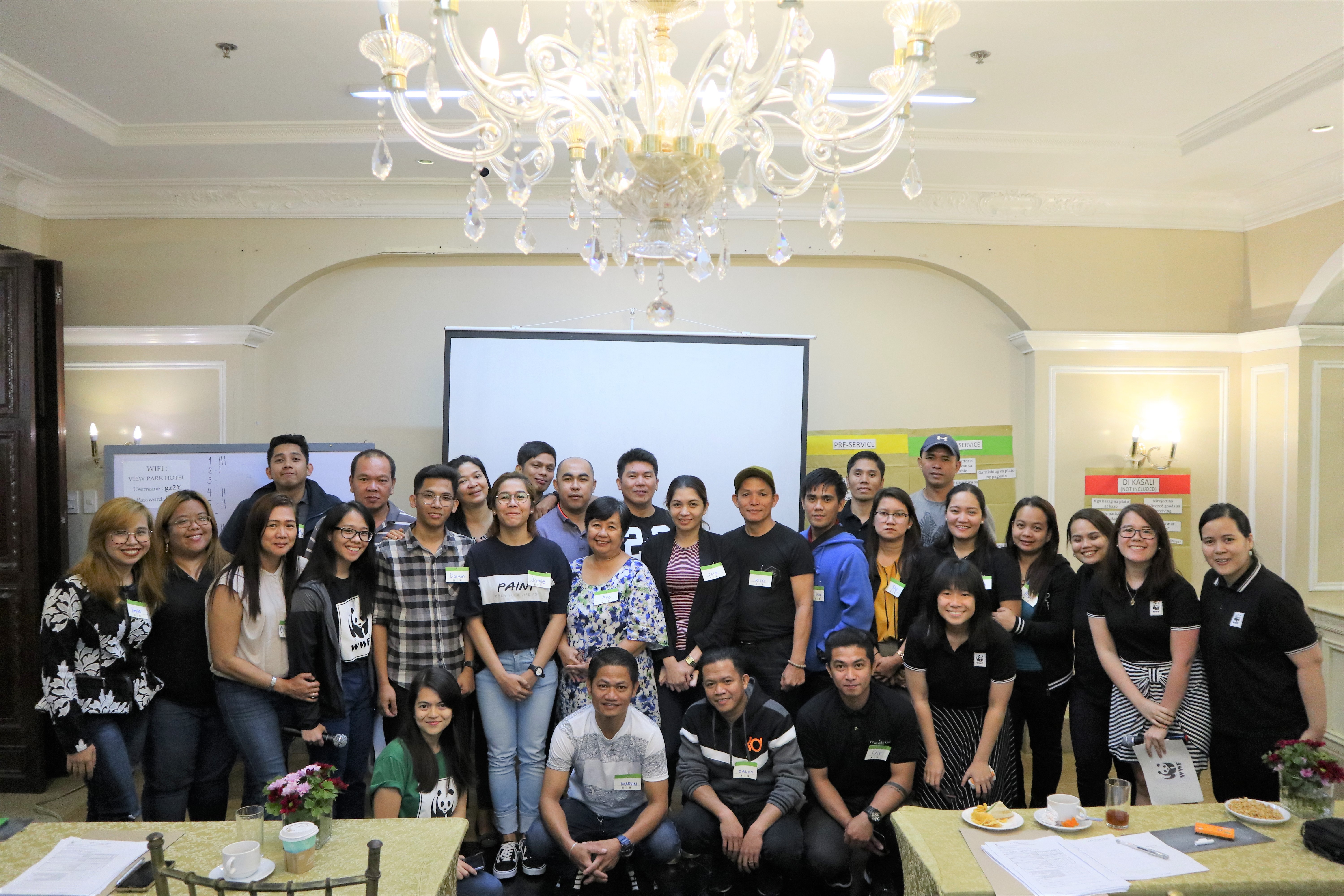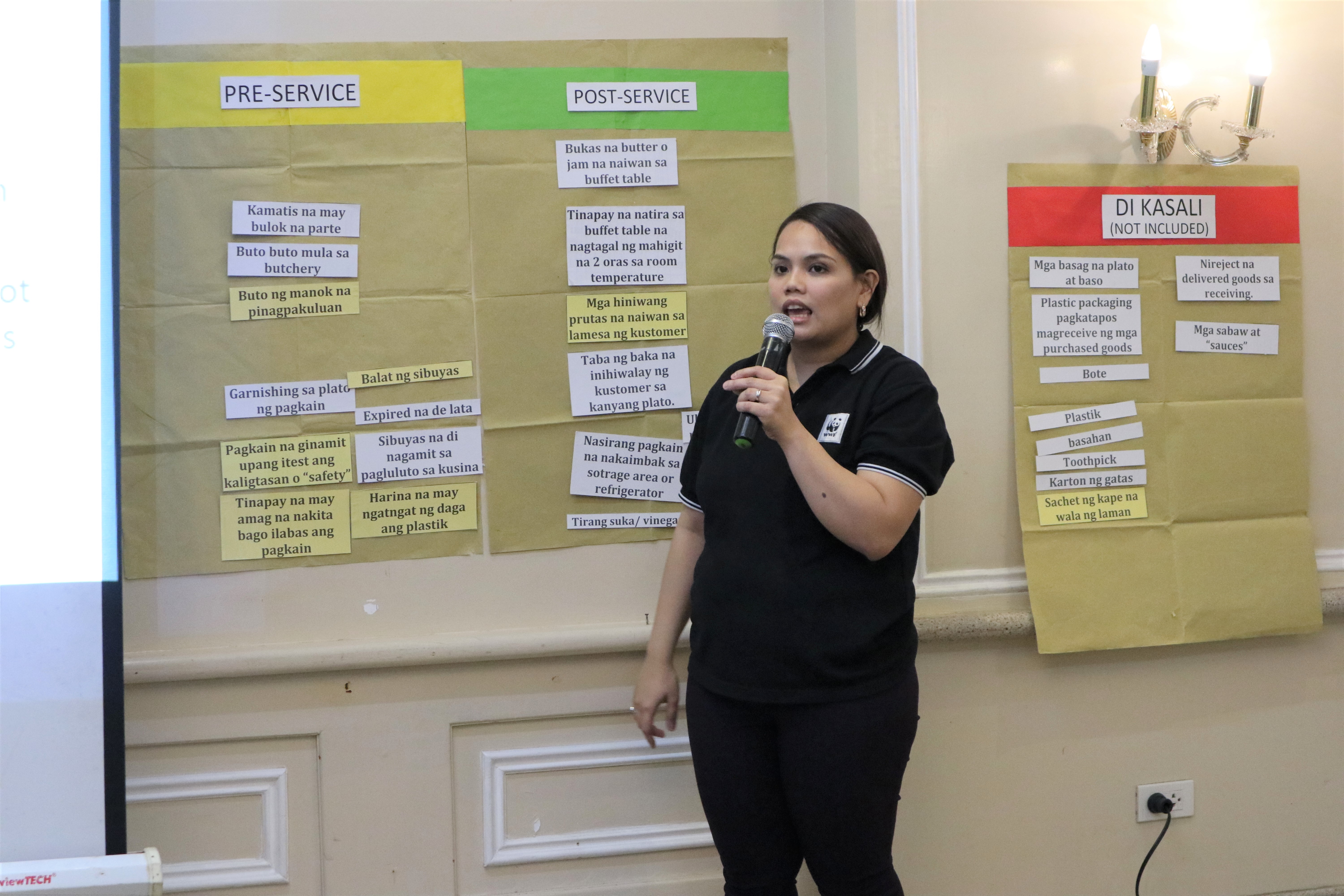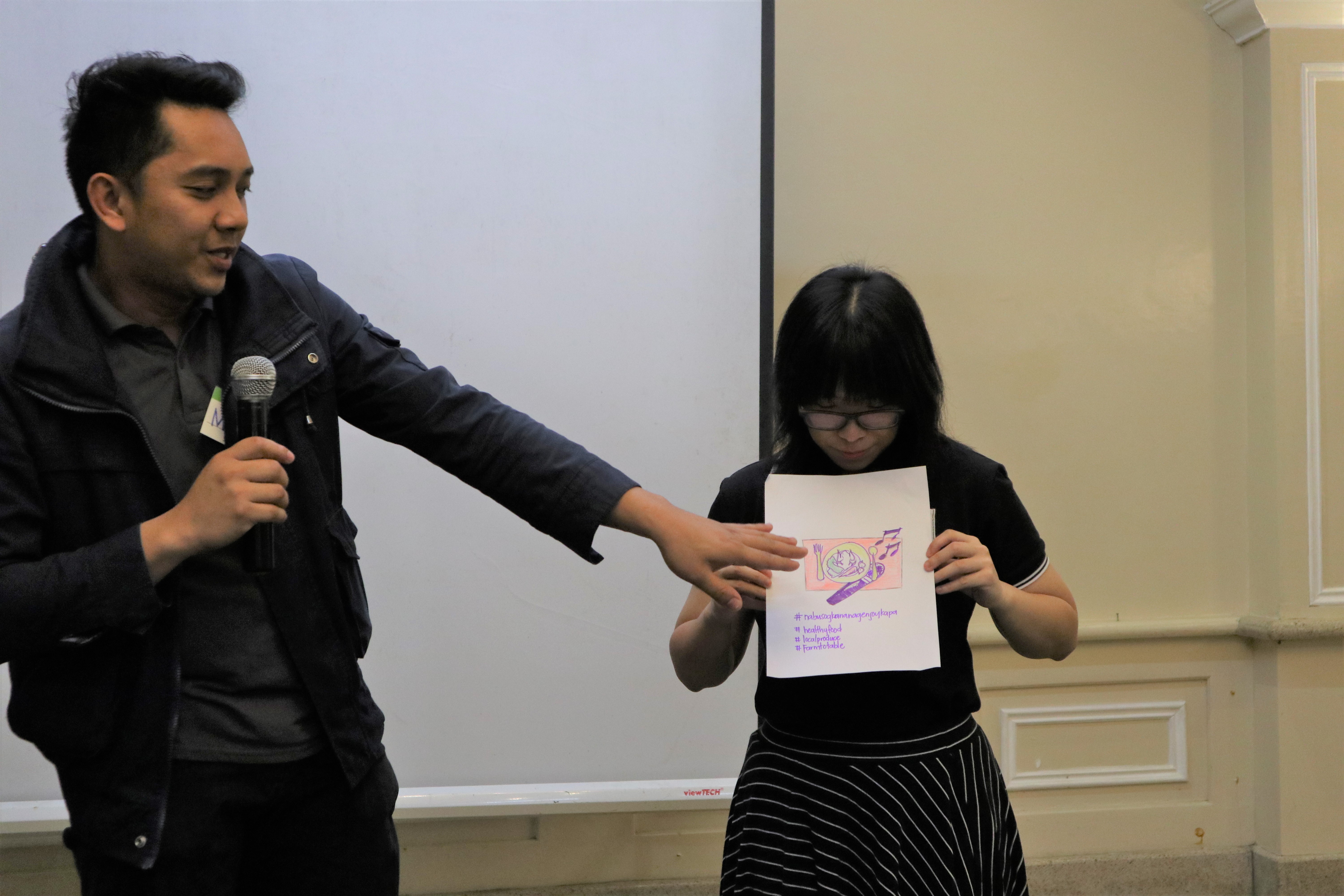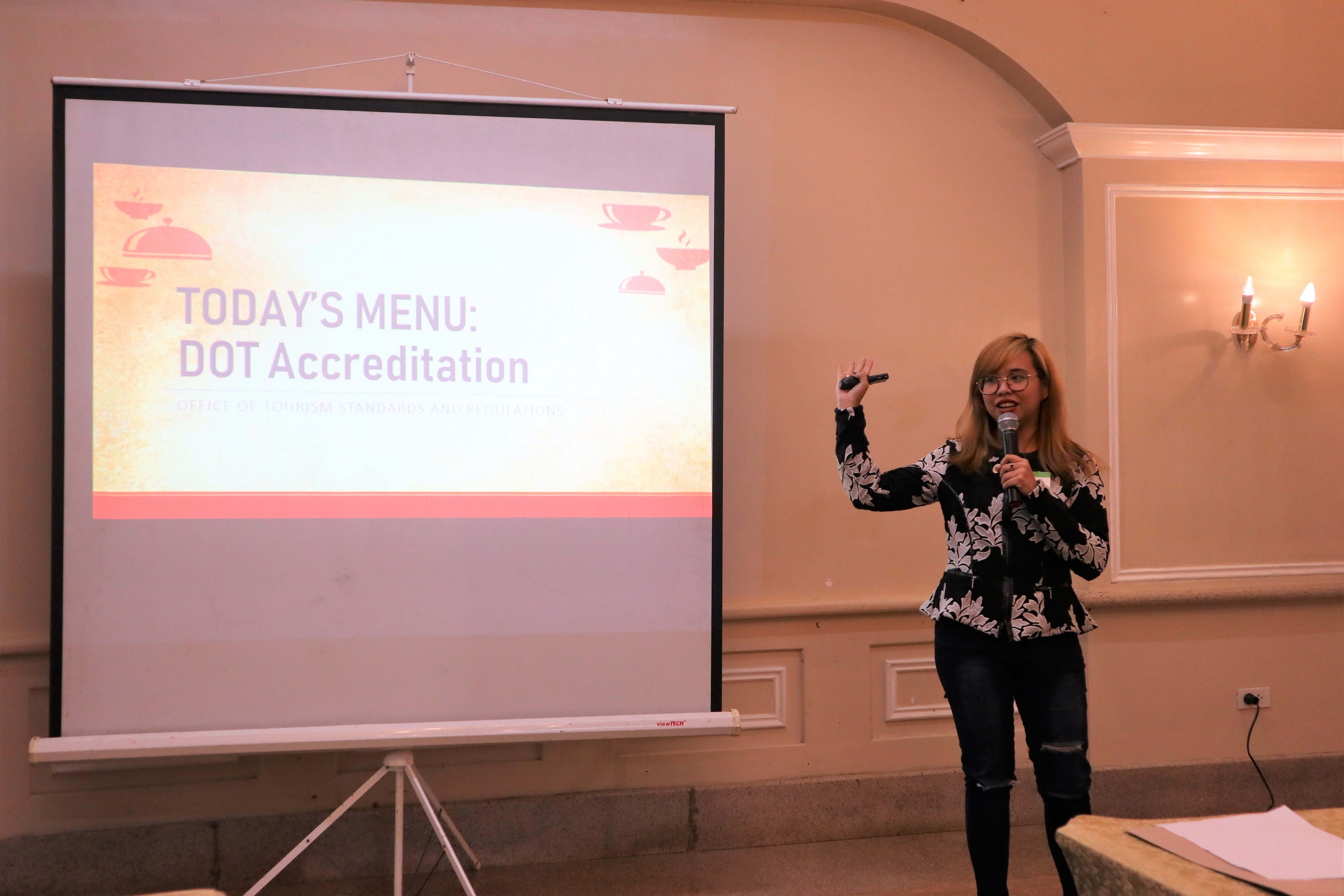WWF-Philippines Conducts Training Sessions on Food Waste Management and Sustainability Marketing for Serve Our Planet 2019 Tagaytay City
April 2019

The participants of the Serve Our Planet: Food Waste Management and Marketing Sustainability training include representatives from the Department of Tourism - Philippines, Tagaytay Tourism Council, the project’s partner restaurants and organizations, and other interested restaurants and hotels from Tagaytay City. Photo © Gabriel Villalon / WWF-Philippines
Last April 8, 2019, World Wide Fund for Nature (WWF) Philippines’ The Sustainable Diner: A Key Ingredient for Sustainable Tourism project conducted the Tagaytay City leg of Serve Our Planet: Food Waste Management and Marketing Sustainability at the View Park Hotel. Serve Our Planet is a series that provides capacity development trainings and workshops for members of the food service industry, aiming to equip the participants with the skills and knowledge needed in order to help their restaurants and hotels eliminate food waste, as well as ensure that their sustainability efforts are well-communicated to their diners. The second training of the year in Tagaytay City was held in partnership with the Department of Tourism (DOT) Philippines, the Tagaytay Tourism Council, and the Tagaytay City Local Government Unit.

Melody Melo-Rijk, WWF’s Project Manager for Sustainable Consumption and Production in the Philippines, discusses the differences between pre-service and post-service food waste. Photo © Gabriel Villalon / WWF-Philippines
Melody Melo-Rijk, WWF’s Project Manager for Sustainable Consumption and Production in the Philippines, started the session by updating the project stakeholders on significant project milestones as well as re-briefing everyone on the objectives and action plans of The Sustainable Diner project. This proved to be very insightful especially for the representatives of restaurants and hotels who have yet to become a part of the project. After asking the project stakeholders to update their restaurant profiles, she conducted the morning session on Food Waste Management, wherein she presented comprehensive data on the hunger situation globally and in the Philippines, as well as key statistics on food wastage, which established a problematic gap between the food that we are able to produce and the food that reaches our plates. She emphasized that in a country such as the Philippines, where there is a growing dining trend, restaurants and hotels play important roles in promoting sustainable dining through the implementation of operational changes which can lead to less food wastage. This becomes more significant when we take into consideration that Tagaytay City is best known not just for scenic views of the Taal Volcano, but also for the unique gastronomic experiences that it can offer.

Attendees having fun being competitive during one of the group games in the morning session.
Photo © Gabriel Villalon / WWF-Philippines
One way by which restaurants and hotels can help contribute to the fight against food waste is by setting up their own food waste management system. During the session, Melo-Rijk shared the Food Waste Management Toolkit with the participants, developed by WWF US, in collaboration with the American Hotel and Lodging Association (AHLA) and with the generous support from the Rockefeller Foundation. Learning about food waste management was made more interactive through discussions, video presentations, interactive activities, and group games.

Chef Marlon Azuelo of Nurture Wellness Village, one of the training participants, presenting his campaign idea and visual in front of the entire group. Photo © Gabriel Villalon / WWF-Philippines
For the afternoon session, Pamela Luber, The Sustainable Diner project’s Integrated Marketing Communications Specialist, conducted a workshop on sustainability marketing, where participants, regardless of their positions and departments within their organizations, experienced how to creatively brainstorm, craft, and finalize possible sustainability angles and campaigns for their restaurants and hotels. The workshop, comprised of four major parts, helped the participants look at sustainability and marketing communications similarly to how they would look at and conduct a social experiment: they needed to establish the problem, know their values and strengths, assess their audience, and craft a creative solution. Their final training output was to come up with their very own sustainability campaign for their respective organizations, complete with a slogan, a hashtag, and a visual, which they had to present to the rest of the group.

Lexie Flores, DOT-Philippines’ Tourism Operations Officer, discusses the guidelines for DOT accreditation for restaurants and hotels. Photo © Gabriel Villalon / WWF-Philippines
Before the event formally closed, Lexie Flores, Tourism Operations Officer from the Department of Tourism - Philippines, briefly shared with the participants the various guidelines and requirements needed in order to attain DOT accreditation for their restaurants and hotels. According to their website, DOT accreditation is a certification issued by the Department of Tourism to a tourism enterprise, which includes restaurants and hotels, that will serve as an official recognition that the enterprise has complied with the minimum standards for operation of tourism facilities and services. Flores also shared the various benefits that accredited tourism enterprises can enjoy, all for the promotion of sustainable tourism in the country.
The entire day was filled with new learnings and sharing of best practices between restaurants and hotels in Tagaytay City. The Sustainable Diner project hopes that through our workshop sessions, we will be able to encourage more restaurants and hotels to integrate food waste management into their operations and to help us spread more knowledge about sustainability and sustainable dining through creative campaign executions.
The Sustainable Diner project, under WWF-Philippines’ Sustainable Consumption and Production, is part of the International Climate Initiative (IKI). The Federal Ministry for the Environment, Nature Conservation, and Nuclear Safety (BMU) supports this initiative on the basis of a decision adopted by the German Bundestag.
